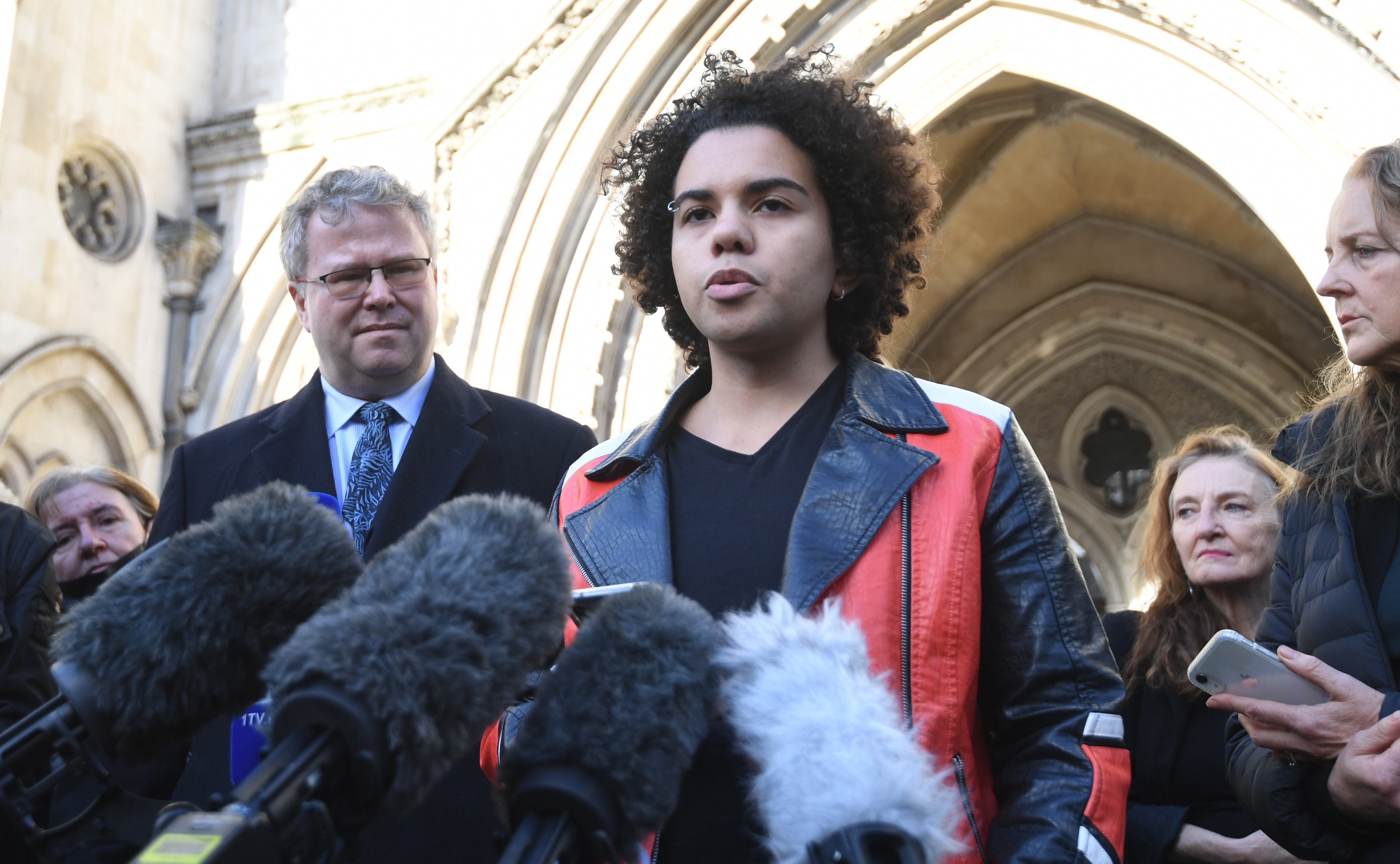NHS trust appeals landmark High Court ruling over puberty-blocking drugs for transgender children
LGBT charity Mermaids said the decision put a ‘strain on the already marginalised transgender and non-binary community’

Your support helps us to tell the story
From reproductive rights to climate change to Big Tech, The Independent is on the ground when the story is developing. Whether it's investigating the financials of Elon Musk's pro-Trump PAC or producing our latest documentary, 'The A Word', which shines a light on the American women fighting for reproductive rights, we know how important it is to parse out the facts from the messaging.
At such a critical moment in US history, we need reporters on the ground. Your donation allows us to keep sending journalists to speak to both sides of the story.
The Independent is trusted by Americans across the entire political spectrum. And unlike many other quality news outlets, we choose not to lock Americans out of our reporting and analysis with paywalls. We believe quality journalism should be available to everyone, paid for by those who can afford it.
Your support makes all the difference.A Court of Appeal hearing starts today over a landmark High Court ruling into the use of puberty-blocking drugs for transgender children.
The appeal is being brought byTavistock and Portman NHS Trust, which runs the UK’s only gender identity development service (Gids) for children.
It comes after a judgement in December where the High Court ruled that under-16s were only able to consent to puberty blockers if they could understand the “immediate and long-term consequences of the treatment”.
Keira Bell, one of the claimants in the case, was referred to the Tavistock and NHS Trust and began taking puberty blockers when she was 16-years-old.
In her 20s she said that her choice to transition to a male was a mistake and believes that the service should have challenged her more on the decision.
The legal challenge was also brought by Mrs A, the mother of a teenage autistic girl who was on the waiting list for treatment.
During the original hearing last year, Ms Bell and Mrs A argued that there is “a very high likelihood” that children who start taking hormone blockers will later begin taking cross-sex hormones, which they say cause “irreversible changes”.
However, the trust - as well as University College London Hospitals NHS Foundation Trust and Leeds Teaching Hospital NHS Trust, to which Tavistock refers children and young people experiencing gender dysphoria - argued that taking puberty blockers and later cross-sex hormones were “entirely separate” stages of treatment.
LGBT campaigners expressed concern after the court’s decision, with the Stonewall charity arguing the ruling was a “green light to those who want to use this as an opportunity to roll back not just the healthcare rights of trans young people, but the rights of all young people”.
Mermaids, a charity that supports transgender, non-binary, and gender-diverse children said in a statement on Tuesday: “We have seen the distress and further delay to accessing treatment that the High Court’s decision in Bell v Tavistock has created for our service users. The decision has put a further strain on the already marginalised transgender and non-binary community and their families in this country.
“We believe strongly that trans and non-binary children should have the same rights over their healthcare decisions as anyone else, in line with their evolving understanding.
“This is in line with the UN Convention on the Rights of the Child and the Gillick competence principle, which underpins practice across a wide range of health and social care, including sexual and reproductive health.
“We support the coalition of health organisations and LGBTQ+ charities have filed a joint submission to the Court of Appeal arguing that competent young people should be able to consent to treatment the same way young people with other medical conditions can.”
Wednesday’s hearing before the Lord Chief Justice Lord Burnett - sitting with Sir Geoffrey Vos and Lady Justice King - is expected to last two days.
Additional reporting by PA



Join our commenting forum
Join thought-provoking conversations, follow other Independent readers and see their replies
Comments